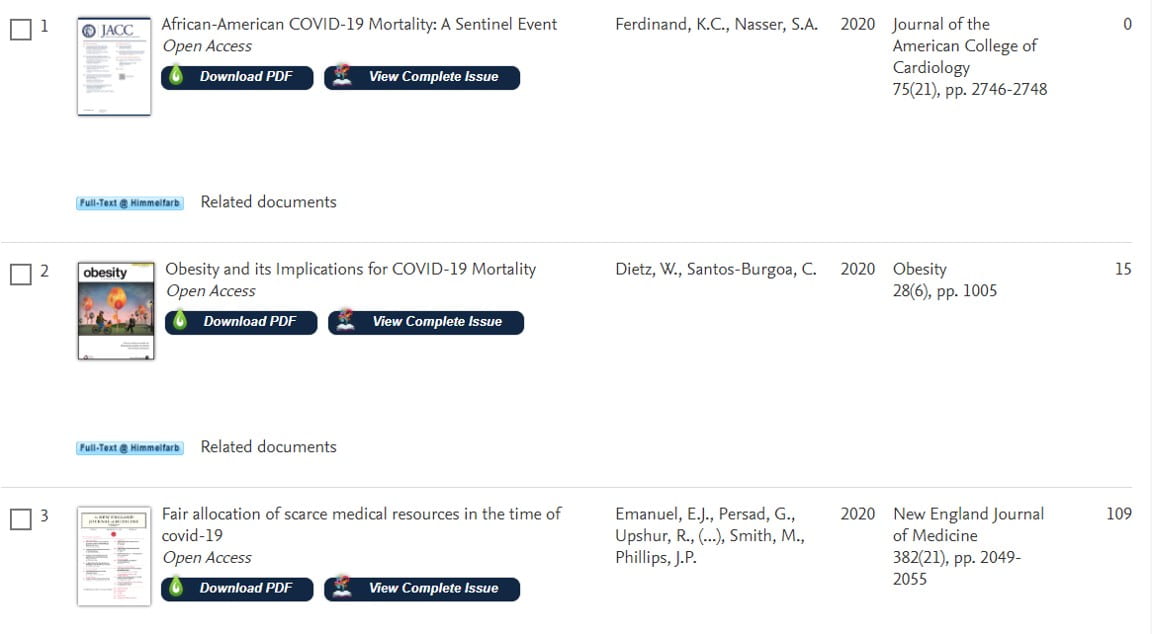 Whether you're staying healthy at home or venturing out for a socially-distanced outing, Healthy Living @ Himmelfarb has some ideas for your summer!
Whether you're staying healthy at home or venturing out for a socially-distanced outing, Healthy Living @ Himmelfarb has some ideas for your summer!
Author: Laura Abate
Peer Review & Pre-Prints
The emergence of the COVID-19 pandemic has presented numerous, extraordinary challenges which have greatly altered our everyday lives. This public health crisis has led to a demand for information as there is a universal desire for solutions to the problems of protecting ourselves from the virus and curing those who have been infected. As research efforts have accelerated to meet these demands there has been a growing tension as the desire for quick, potentially lifesaving information has led to the spread of inaccurate or misunderstood reports which have been seized upon by large portions of the lay public. This tension within the scientific world between speed and certainty is not new, but the current pandemic has made it more obvious to all.
The world of scientific publishing is notoriously slow and deliberate, as processes like peer-review have long provided a check on the flow of scientific information to ensure quality before the results of research are disseminated to the wider scientific community and ultimately to the public. However during this ongoing crisis, there has been a rise in the publication of pre-prints (i.e., manuscripts which have not undergone formal peer review) as researchers try to get their potentially life-saving information into the hands of clinicians and policy makers as soon as possible. Pre-print services, such as ArXiv in the physics community, have existed for a long time, but they are now receiving more attention than ever.
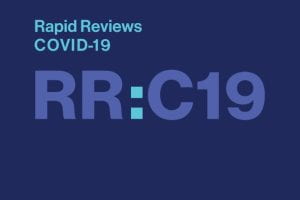 In an effort to add a gate-keeper function to the growing world of COVID-19 related pre-prints, MIT Press and the University of California have developed Rapid Reviews: COVID-19, a so-called “overlay journal”, whose function is to sift through the most popular COVID-19 related pre-prints and provide a form of peer-review. This differs from the traditional publishing model as the pre-prints will be selected by editors of the journal as opposed to being directly submitted by the authors themselves. In fact, though authors will be informed that their work has been selected for review by the journal, they will not have a say in whether their pre-print is reviewed or not. Additionally this journal will differ from others in that the identities of the reviewers will be made known, which will hopefully encourage thoughtful and careful reviews.
In an effort to add a gate-keeper function to the growing world of COVID-19 related pre-prints, MIT Press and the University of California have developed Rapid Reviews: COVID-19, a so-called “overlay journal”, whose function is to sift through the most popular COVID-19 related pre-prints and provide a form of peer-review. This differs from the traditional publishing model as the pre-prints will be selected by editors of the journal as opposed to being directly submitted by the authors themselves. In fact, though authors will be informed that their work has been selected for review by the journal, they will not have a say in whether their pre-print is reviewed or not. Additionally this journal will differ from others in that the identities of the reviewers will be made known, which will hopefully encourage thoughtful and careful reviews.
It is hoped that this effort will provide some of the benefits of the traditional peer-review process without significantly slowing the dissemination of important, life-saving information during this time of crisis. It will be interesting to see if efforts like this can lead to more long-lasting changes in the world of scholarly communication when our current time of crisis has passed.
July Healthy Living Calendar
Take a moment for yourself and check out Healthy Living @ Himmelfarb's July Study Break Guide! This guide offers idea for relaxation, restoration, and creativity including watching DC's zoo animals online, taking a yoga class, or trying your hand at paint by numbers!
Final Week: Book Spine Poetry Contest!
Stack some books from your collection, snap a photo, and share an image on Instagram. Be sure to tag @himmelfarbgw and #gwspinepoetry for your chance to win a $25 gift card to Politics and Prose. Images must be posted between June 1 and June 30, 2020, to be considered eligible. Only GWU SMHS, SON, and SPH affiliates are eligible to win. Entries will be evaluated for originality and creativity. Winner will be announced July 7, 2020.
Himmelfarb Opens Its Doors with Changes to Protect Your Health
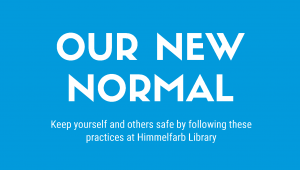 The Himmelfarb Library will open on Monday, June 15 to patrons that have been approved to be on campus during phase 1 of reopening and to students currently enrolled in classes or on clinical rotations. Our summer hours (subject to change) are:
The Himmelfarb Library will open on Monday, June 15 to patrons that have been approved to be on campus during phase 1 of reopening and to students currently enrolled in classes or on clinical rotations. Our summer hours (subject to change) are:
Mondays – Thursdays: 8am – 8pm
Fridays: 8am – 6pm
Saturday – Sunday: 12n – 8pm
We are implementing a number of safety measures to promote social distancing and safeguard your health.
Masks
- Users are required to wear a mask at all times inside the library.
Getting around
- Directional signs will be posted throughout the library to indicate proper distancing and traffic flow.
- Only one person at a time may use the elevator; priority goes to handicapped users.
- Our stairwells will be one-directional:
- To go up, use the stairwell on the Courtyard side of the building next to the elevator.
- To go down, use the stairs on the 23rd Street side of the Library.
Using study spaces
- We have arranged study tables and chairs in a way that ensures 6 ft. of space between users. Floor decals will be used as markers for each and every approved seat to make sure that the patrons are social distancing
- Please do not move furniture.
- Keep chairs stationed over their floor decals.
- All study rooms at Himmelfarb Library MUST be reserved in advance on our web page.
- To ensure that all students have access to our limited spaces, rooms may only be reserved for a maximum of 4 hours per day.
- Only 1 user is permitted in a study room at a time, except in the following rooms:
- 2 users are permitted in: B100B, B100A, 201, 203G, 204H, 203C, 204C, 304I, 304C, and 305H.
- 4 users are permitted in: 303.
- Please limit the amount of food and drink you bring into the library (You can only eat in a library carrel or study room.). Please clean up your space before you leave.
- Hand sanitizer and wipes will be available throughout Himmelfarb.
Handling library materials
- If you pull a book off the shelf that you don’t plan to check out, please return it to a shelving cart.
- Library staff will quarantine all books on carts for 3 days after usage.
- Library staff will quarantine all borrowed books for 3 days upon check-in.
- Borrowed equipment will be cleaned upon return and prior to checkout.
Restrooms
- Restrooms will have a one-person occupancy limit.
- Please announce yourself before entering to make sure the restroom is unoccupied.
- To open the door without using your hands, use the “foot puller” .
Please let us know if you have any questions or concerns. You may text a librarian at 202-601-3525, or send an email to: himmelfarb@gwu.edu. You may also contact the Circulation Desk at 202-994-2962.
LibKey Nomad: more full-text, FASTER!
 LibKey Nomad now works with Scopus and Web of Science to get you to full-text faster!
LibKey Nomad now works with Scopus and Web of Science to get you to full-text faster!
LibKey Nomad is a Chrome browser extension that can connect you to articles in Himmelfarb Library’s collection. LibKey Nomad previously worked with multiple sources including PubMed, publisher sites, and even Wikipedia - and Scopus and Web of Science have been added to this list. LibKey Nomad immediately delivers a PDF if available, and will otherwise provide you Himmelfarb full-text and document delivery options.
LibKey Nomad provides a 'Download PDF' link as the first option, and if that's not possible will provide other full-text links and Documents2Go document delivery options via Himmelfarb Library. LibKey Nomad can also connect you to a table of contents for the specific issue to allow you to explore that issue for related items.
To use LibKey Nomad, download LibKey Nomad from the Chrome Web Store page. After you install the extension, choose ‘George Washington University – Himmelfarb Library’ as your institution, and you’re good to go!
Please contact Laura Abate (leabate@gwu.edu) with questions or comments.
Healthy Living @ Himmelfarb: June Study Breaks!
 Move your body, appreciate the small things, see the great outdoors and be part of the GW community via activities and recommendations on the June Healthy Living @ Himmelfarb Summer Study Break calendar!
Move your body, appreciate the small things, see the great outdoors and be part of the GW community via activities and recommendations on the June Healthy Living @ Himmelfarb Summer Study Break calendar!
Citation Organization for Beginners
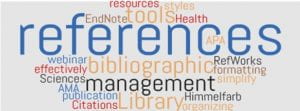 On Friday May 8 at noon EST, the next course in Himmelfarb Library's 2020 Scholarly Communications series will be released! Citation Organization for Beginners with Paul Levett will be useful if you're in the market for a citation management tool or already using one and want to know about your options.
On Friday May 8 at noon EST, the next course in Himmelfarb Library's 2020 Scholarly Communications series will be released! Citation Organization for Beginners with Paul Levett will be useful if you're in the market for a citation management tool or already using one and want to know about your options.
One of the most challenging aspects of the publication process can be documenting and organizing references and citations. In this webinar, Paul Levett will explore how bibliographic management tools can simplify this work and ensure that you adhere to formatting styles such as APA or AMA. Paul will examine bibliographic management tools such as RefWorks, EndNote and more to show you how to use these resources quickly and effectively.
Citation Organization for Beginners will be available from Himmelfarb Library's YouTube Channel. Check out the sessions previously released in our 2020 Scholarly Communications Series!
Coming soon: Covidence Training!
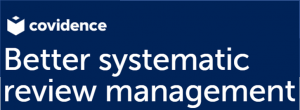 On Wednesday April 22 at noon EST, the next course in Himmelfarb Library's 2020 Scholarly Communications series will be released! Covidence Training with Tom Harrod will be useful if you’re currently working on a systematic review or plan to begin a systematic review in the future.
On Wednesday April 22 at noon EST, the next course in Himmelfarb Library's 2020 Scholarly Communications series will be released! Covidence Training with Tom Harrod will be useful if you’re currently working on a systematic review or plan to begin a systematic review in the future.
Covidence, a service recently added to Himmelfarb's collection, greatly streamlines the process of creating a systematic review. In this webinar, Tom Harrod will review the common steps performed when creating a systematic review and explore how Covidence can help you during all of these stages. He will also show you how to get a Covidence account through the Himmelfarb Library’s subscription.
Maximizing Health IT, Modeling, Tracking, Tracing, and Other Public Health Tools during the COVID-19 Outbreak
 The American Medical Informatics Association (AMIA) presents a free webinar today (4/20) at noon ET entitled: Maximizing Health IT, Modeling, Tracking, Tracing, and Other Public Health Tools during the COVID-19 Outbreak.
The American Medical Informatics Association (AMIA) presents a free webinar today (4/20) at noon ET entitled: Maximizing Health IT, Modeling, Tracking, Tracing, and Other Public Health Tools during the COVID-19 Outbreak.
To register, go to: https://register.gotowebinar.com/register/6742608129043857933
"As part of AMIA's ongoing COVID-19 Webinar Series exploring the role informatics experts are playing in the fight against the global pandemic, this session will discuss the use of informatics by public health agencies to assist in determining where best to allocate resources to maximize health efficiency and efficacy.”




